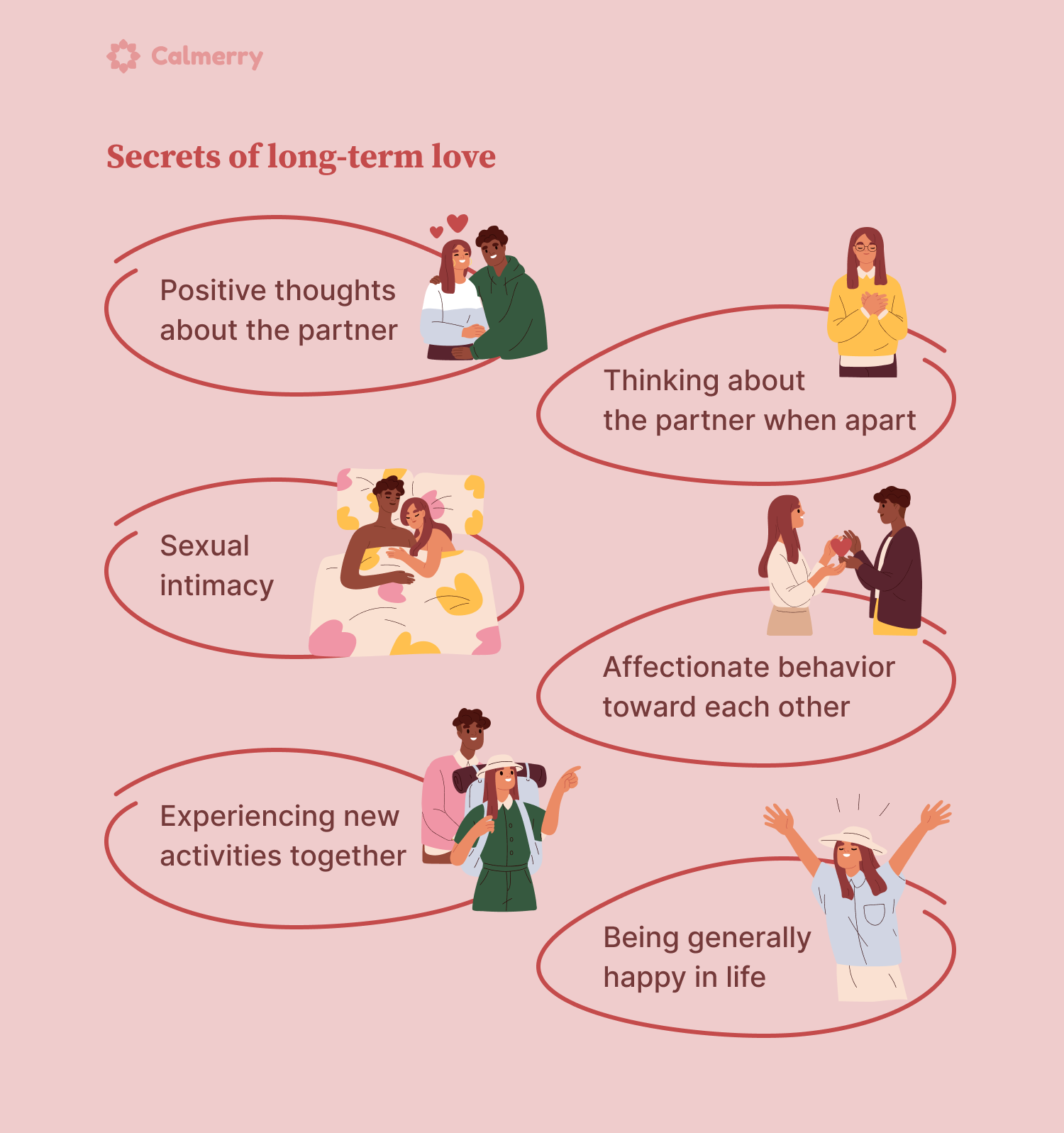Science-Backed Facts About Love and Attraction: What the Research Says

In this article
For most people, love and relationships are the key components of a satisfying life. In fact, many of us have lasting connections with other people, including romantic ones, among our main priorities in life.
If you’re looking for a healthy relationship and want to reach a true understanding with your partner, it can be helpful to know some scientific facts about love. Below, we will take a look at what the research says about love and attraction.
The psychology of attraction: benefits of altruism
It’s no secret that the human species tends to be drawn to mates who are physically attractive, at least at the beginning of a relationship. However, certain character traits can make people appear even more attractive.
For example, a recent study in Evolutionary Psychology shows that women prefer to have long-term relationships with altruistic men. Physical attractiveness was also found to be important, but when men were both attractive and altruistic, they became even more desirable to women in the study.
Furthermore, men who were lower in physical attractiveness became more desirable as long-term partners when they were described as being altruistic. What can be taken away from this study is that when it comes to relationships, it helps to be a kind person.
Beyond keeping up with personal appearance, showing concern for the well-being of others can go a long way toward attracting a potential mate.
Here are some more facts about attraction. Additional research has taken a look at the features that people find to be attractive in others. One study found that both men and women find the following to be attractive:
- Overall grooming
- Formal clothing
- Positive facial expressions
- Flat stomach and shapeliness of the physique
The good news about the above findings is that not every attractive feature is linked to a person’s birth-determined physical appearance. Certainly, it may be difficult to change the shape of your physique, but factors such as clothing, grooming, and facial expressions can be changed.

If you’re trying to attract a partner, it can be beneficial to focus not only on the way you dress but also on your general attitude and facial expressions. Making an effort to smile and show positive body language can make you more attractive when compared to someone who appears to be irritated.
Love really is “on the brain”
Another interesting finding pertaining to love facts is that couples are so connected that their brain activity reveals their love for each other. A recent study in Frontiers in Psychology explored the neurological indicators of romantic love in newlywed couples.
Study results found that three brain chemicals: oxytocin, dopamine, and vasopressin were involved in bonding and love among newlywed partners. More specifically, romantic love is maintained through the release of these brain chemicals. For instance, when a person looks at a picture of their spouse, there is a release of dopamine, which is associated with feelings of pleasure.
The study also found that genes involved in the activity of oxytocin and vasopressin were linked to romantic love, suggesting that some people may be genetically more wired for bonding with a partner. So, it’s no surprise that people may experience love differently and have completely different needs in a relationship.
Birds of a feather don’t always flock together
Some of the scientifically-backed psychological facts about love are different from what you might expect. For example, it’s probably reasonable to conclude that partners with similar personality traits would be happier in their relationships. Surprisingly enough, this belief doesn’t hold up in research.
A study in the journal Personality and Individual Differences found that while sharing similar political ideologies seemed to be important for couples, having similar personality traits is not linked to relationship satisfaction.
Research data shows that having similar values on big-picture issues like religion and human rights is beneficial for relationships. But people with different personality traits can be quite happy in their relationships. It might be that having distinct personalities allows each member of the partnership to complement the other.
For instance, if one partner is an introvert, an extroverted partner could motivate the introvert to try new things. On the other hand, the introvert might teach the extrovert to be more self-aware and reflective.
We often end up marrying our parents
Whether we’re consciously aware of it or not, one of the more interesting facts about attraction is that we tend to be fond of people who remind us of our parents. A study conducted in the early 2000s found that both men and women were likely to choose partners who had similar eye and hair colors when compared to their parents.
This association between parental and partner features was stronger for the opposite-sex parent, meaning women preferred men who looked similar to their fathers, and men preferred women who looked similar to their mothers. People who remind us of our parents may trigger feelings of warmth and familiarity, increasing our attraction to them.
Empathy & relationship formation
Empathy, or the ability to understand the feelings and experiences of our partner, is essential. But it might be especially important during the transition from a short-term to a long-term relationship. Research in the Journal of Family Psychology found that empathic accuracy, which is the ability to accurately perceive a partner’s emotions and thoughts, is associated with higher levels of relationship satisfaction, particularly in relationships of moderate length.
This means that being empathetic toward your partner is essential for creating a solid relationship and moving toward a long-term commitment. The study also found that the ability to perceive a partner’s negative feelings was more important to relationship satisfaction than the ability to accurately identify positive emotions.
It might be that partners rely upon each other to provide support during stressful times, so being able to recognize negative emotions is particularly beneficial.

Long-term love is possible
It’s not uncommon for people to believe that passion and intimacy fade over time in the course of long-term relationships and marriages. Still, the truth is that romance doesn’t always dwindle away over time. In fact, in a study of married individuals, 40% of those married longer than 10 years reported they were still “intensely in love.”
So, what is the secret to keeping passion alive? The factors below were common in long-term couples who reported intense love for each other:
- Positive thoughts about one’s partner
- Thinking about the partner when apart
- Sexual intimacy
- Affectionate behavior toward each other
- Experiencing new activities together
- Having general happiness in life
The bottom line is that couples don’t have to grow apart over time. With intentional effort, marriages can stay passionate, just like in the beginning stages of a relationship.
Using science in your daily life
Knowing psychological facts about love is helpful, but it’s also beneficial to take this knowledge and put it into action to improve your relationship. There are some key takeaways from the facts above love discussed here, and they can be used to enhance your own relationship satisfaction.
Here’s what stands out:
- There is more to attraction than just outward appearance. Showing care and compassion for others can make you more attractive to a partner.
- Your brain is wired for long-term connection with a partner. If you feel especially happy when thinking of your significant other, you likely have a strong bond, rooted in biology. Taking steps to strengthen the bond by spending time together and continuing to learn about each other will reinforce the connection between the two of you.
- If you aren’t exactly like your partner, this doesn’t mean the relationship is destined to fail. As long as you share common values in important areas, such as your beliefs about finances, family, and household duties, it’s perfectly okay if one of you is more outgoing than the other.
- You may be subconsciously drawn to people who remind you of your parents. It’s important to develop self-awareness of who you’re attracted to, and whether the people you choose are a good fit. Familiarity can attract you to people who aren’t necessarily healthy for you.
- Empathy is essential for creating a solid foundation within your relationship. For a healthy bond, it’s important to make an effort to understand your partner’s emotional world.
- Passion and love can be long-lasting, as long as both you and your partner are committed to keeping the love alive. When you hit a rough patch or feel like you’re just going through the motions, make an effort to try new things together, spice things up in the bedroom, or incorporate more physical affection into your daily lives.
It’s also beneficial for you to engage in activities that increase your own happiness, as being generally satisfied with life leads to better satisfaction in relationships.
Final thoughts
In some cases, knowing these facts about love and attraction can give you new tools to help you make your relationship all that you want it to be. However, some couples may find themselves facing issues that require professional intervention.
If you’re struggling with conflict or can’t seem to develop healthy communication patterns in your relationship, you may benefit from working with a couples therapist. At Calmerry, we offer online relationship counseling so you can connect with a professional from the comfort of your home. You can also try therapy to address any personal matters that may stop you from building a fulfilling relationship.
online therapy
live video session




